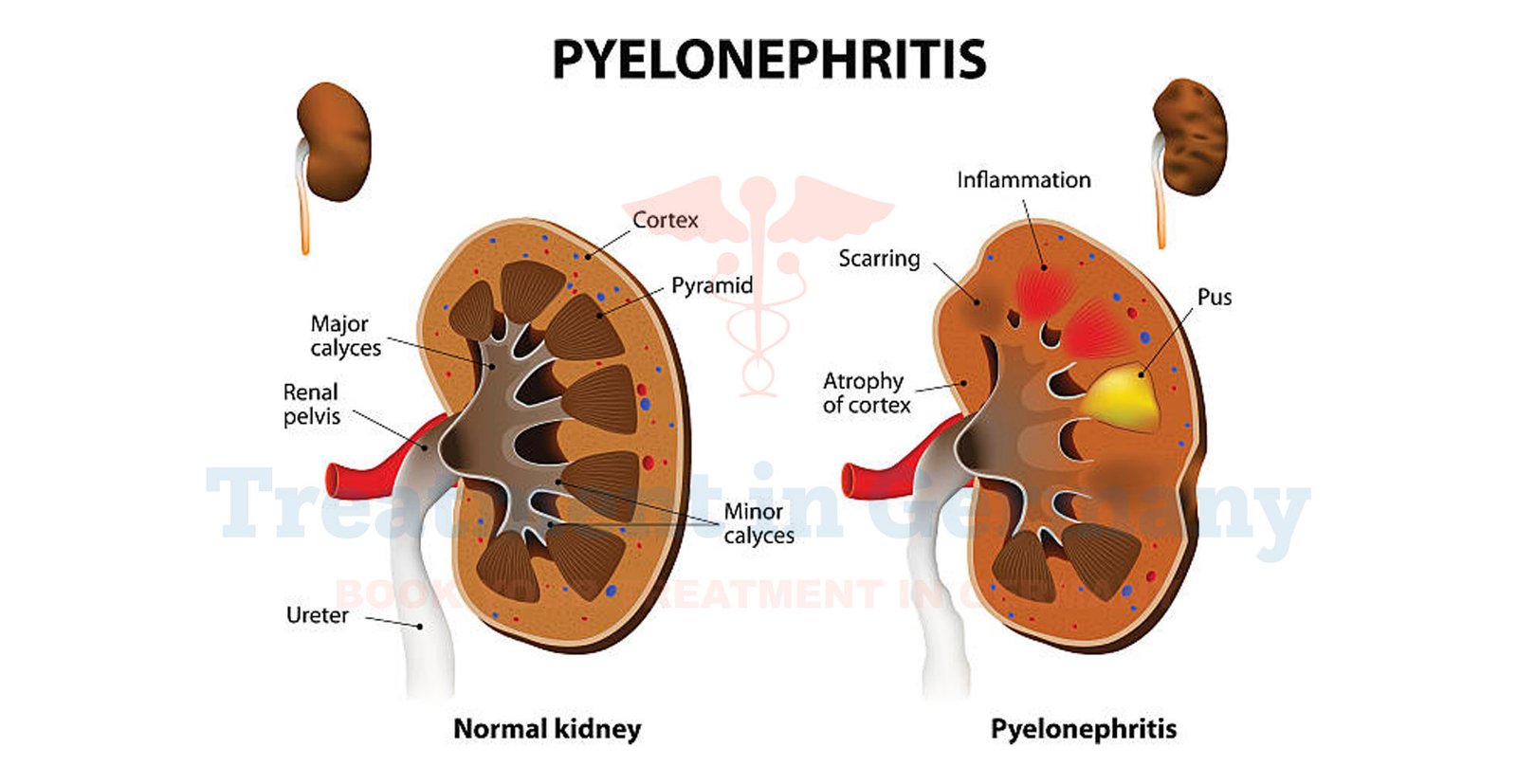What is Xanthogranulomatous Pyelonephritis?
Xanthogranulomatous pyelonephritis (XGP) is a rare and severe form of kidney infection that typically arises as a complication of chronic kidney infections, often due to untreated or inadequately treated urinary tract infections (UTIs).
In XGP, the kidney tissue becomes swollen and filled with clusters of immune cells called macrophages, which contain lipid (fat) deposits, giving the affected areas a yellowish appearance. This condition can lead to significant damage to the kidney tissue over time if not promptly diagnosed and treated.
Side Effects of Xanthogranulomatous Pyelonephritis
The symptoms of Xanthogranulomatous pyelonephritis can vary but often include fever, chills, abdominal or flank pain, frequent urination, and sometimes visible blood in the urine. As the condition progresses, patients may experience weight loss, fatigue, and a general feeling of illness.
If left untreated, XGP can lead to complications such as abscess formation within the kidney, kidney failure, or even systemic infection spreading to other parts of the body.
How is Xanthogranulomatous Pyelonephritis Diagnosed?
Diagnosing Xanthogranulomatous pyelonephritis typically involves a combination of clinical evaluation, imaging studies such as ultrasound, CT scan, or MRI of the kidneys, and laboratory tests to analyze urine and blood samples.
Imaging studies are crucial to visualize the characteristic changes in the kidney tissue associated with XGP, such as large areas of inflammation and possible abscess formation. A definitive diagnosis may require a biopsy of the affected kidney tissue to examine under a microscope.
Potential Treatment of Xanthogranulomatous Pyelonephritis
Treatment of XGP often involves a multidisciplinary approach and depends on the severity of the condition and extent of kidney damage. In most cases, surgical intervention is necessary to remove the affected part of the kidney (partial nephrectomy) or, in severe cases, complete removal of the kidney (nephrectomy).
Antibiotic therapy is also administered to control the infection before and after surgery. In some instances, where the infection has caused extensive damage or complications, additional supportive care such as drainage of abscesses or management of kidney function may be required.
👉 Contact us for further information and receive a complimentary consultation.


.webp)
 (1).webp)

.webp)
 (1).webp)


.webp)
 (1).webp)

.webp)
 (1).webp)
